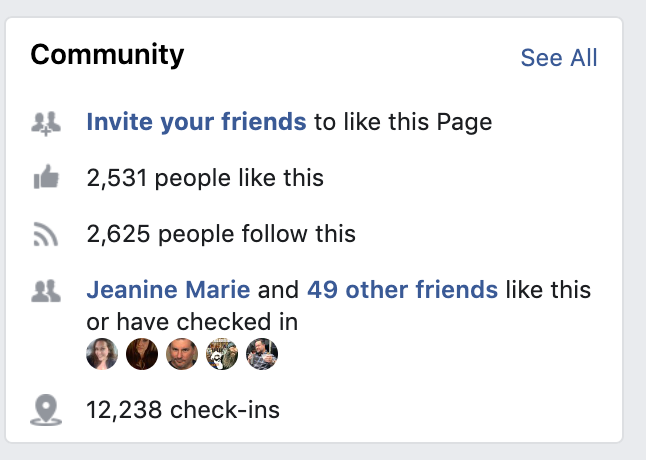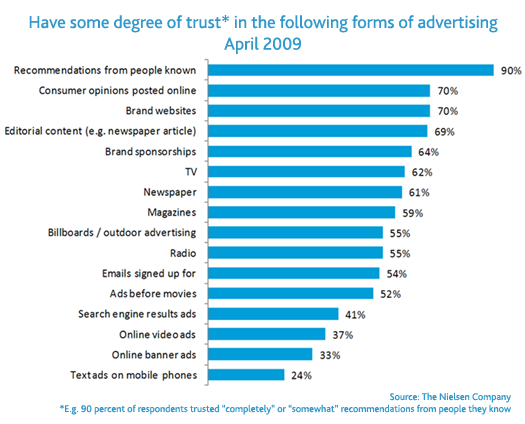Psychological Strategies in Marketing: 8 Principles That Actually Work
25 Jun 2020 By: Natalya Bucuy
Updated
Hi there. Do you need a tissue after watching that?
I sure did.
Sorry to make you emotional, but it’s a perfect way to discuss psychological strategies examples in marketing.
Duracell used a powerful tactic—emotional marketing. The bond between parents and children resonates with everyone, even the toughest viewers. That ad stirs emotions, making it hard not to feel connected.
This reaction is purely psychological. Even if viewers don’t buy right away, they remember the message and, more importantly, the brand behind it.
According to Gerald Zaltman, a Harvard Business School professor 95% of our purchase decision making takes place subconsciously. (CustomerThink)
Customers make decisions emotionally and justify them rationally. Share on XEmotions are at the root of purchasing decisions. And that is why psychological strategies in marketing are so effective. Those strategies can serve as great tools for successfully connecting with audiences and customers. And just like a good carpenter, a good marketing professional has a variety of tools in the box.
The guide below contains 8 principles that actually work, the psychological reasons they work, and some examples of real-life applications.
Psychological Strategies In Marketing: A Secret Weapon And A Code Of Ethics (They Can Be Both!)
Why would you want to read yet another list of tactics? What is so special about psychological strategies in marketing? There are three reasons:
- They work because they are based on studies and the understanding of the one thing that drives all customers – their brains. When marketers base techniques on cognitive biases, the tactics strike a neuron with customers (yep, literally).
- People don’t change. It took us millions of years to evolve to who we are today and it will take another million to change the way we think, feel, and make decisions. Knowing what psychological strategies in marketing actually work for humans in general instead of chasing the current “flavor of the week” can serve marketers better. (Richard Shotton, Everyone Hates Marketers Podcast)
- These techniques can do wonders for the marketers and the customers. But sometimes marketers and advertiser use them to do things to the customers. When used to manipulate these practices become questionable. If marketers know the right way to use the tactic, they can use psychological strategies in marketing knowingly and responsibly. Then, they might be able to better support their company’s values and pursue the organization’s purpose beyond profits. (Ethics matter!)
So get your learning caps on, and let’s dive into the fascinating world of psychology and marketing.
1. Exclusivity: Like your girlfriend, every customer wants to feel like one and only.
Rihanna made it clear: she wanted to feel like the only girl in the world.
Keep that song in your head as a constant reminder – so do the customers.
“The power of exclusivity lies in status, and the primal desire to be the “first” or the “only” to have something that the rest of the tribe doesn’t,” says Pasha Irshad, senior director of digital and integrated marketing at Merritt Group.
Special membership rates, exclusive VIP offers, or access to specific items that others do not have, all increase customers’ interest. Exclusivity works because it makes the customer feel special and strokes his or her ego.
Being upgraded to business class on the plane is an example of exclusivity marketing at work (as well as great customer service). So is getting to ski on a mountain that claims to be “more dangerous than an average skier can handle.” (Given that one is a skilful skier, of course, safety first!).
The Heart Attack Grill and its marketing of an octuple bypass burger is yet another example. Can you attempt this monstrosity? Because it seems like very few people can!
2 Big Boys weigh in at the Heart Attack Grill, if you weigh over 350 lbs eat for free, did we? https://t.co/HBvD0ylgIm pic.twitter.com/PCD8fLOkFu
— 2bigboys.com (@twobigboysblog) February 26, 2019
2. Scarcity: “Don’t Care How, I Want it Now!”
Remember Veruca Salt from Willy Wonka? She really wanted that goose that laid golden eggs because no one else had one.
Scarcity is exclusivity’s younger, sneakier sister. Instead of catering to the customer’s ego, scarcity works because of the psychological fear of loss. (Ever heard of Fear Of Missing Out or FOMO?)
Waitlists, limited supplies, and time limits (Flash sale! Doorbuster! Today only!) are all examples of scarcity as one of the psychological strategies in marketing. They all communicate urgency and heighten the customer’s hankering to buy, sign up, and participate.
“If something is only available in limited quantities or for a limited time, we make a mental shortcut and assume it is more valuable and of higher quality – because it’s harder to get. Following on from this, scarcity also increases desire. If we know we can’t have something, we want it even more. (Sarah Jamieson, Persuasion Works.)

Even if the customer did not want or need the product before, scarcity prompts a purchase due to increased desire. Pandemic buying serves like an example of scarcity working its magic. If at any time you wondered if you really should get more toilet paper or frozen pizza, scarcity mindset got the best of you. Even if you had plenty of TP and don’t even like pizza.
Victorian supermarkets are reintroducing buying limits in an effort to curb panic buying. This pic of a bare toilet paper aisle taken last night in Taylors Hill @9NewsMelb pic.twitter.com/nVSGYs3XHs
— Tom Kelly (@tpwkelly) June 24, 2020
Speaking of pandemic, have you read our recent post about tools to run a business without touching people?
It’s only available on our blog. We might take it down soon, so you might want to check it out right away. 😉
3. Inclusivity: For the Love of All People.
Wait, exclusivity, and inclusivity? What’s going on here?
Well, as it turns out, humans can be selfish. But they also feel really, really good about themselves when they are not. They can get something for themselves. But if they know that other people have access to it and no one is left out, they feel awesome.
In other words, while people like to look out for themselves and sometimes get things no one else can, they also have values. Modern society values diversity, equality, freedom, and fairness.

Enter the marketing movement: inclusion.
Millennials are 70% more likely to select a brand that embraces the values of inclusion and diversity when it comes to its promotions and offers. (Agility PR Solutions)
“Consumers have evolved from wanting to be sold an unrealistic dream, and instead, opt to feel like they’re a part of the dream,” says Ra’el Cohen, Chief Creative Officer at ThirdLove, an intimate apparel brand. “They want to see themselves in the brands they support, whether that’s in the products offered or models portrayed in marketing.” (NewsCred)
That is why when we watch an advertisement for leggings that features women of all shapes and sizes, we feel good about buying from the brand. It brings a message of inclusivity, which works because it speaks to our own values.
4. Social Proof: “But, Mom! Everyone’s doing it!”
We like to feel special and unique and we like to include other people. And we also kind of like being part of the tribe.
Imagine if you’re invited to a party. You don’t necessarily want to go that much, but then your friend calls you and says, “Hey, did you hear about the party Saturday night? Shelby, and Jessica, and Michael are all going! Are you in?” Now, the friend did not say anything about the party itself that would make it more appealing. But the fact that the people you know are going does peak your interest a little bit.

There is a bit of that FOMO factor we talked about in there, but also there is social proof.
This is another marketing strategy that works. We see this on social media when the platform tells us that one of our friends has been to this particular restaurant before.

And we see it in reviews and referrals.
According to Nielsen research, 90% of consumers surveyed noted that they trust recommendations from people they know, while 70 percent trusted consumer opinions posted online. (BigMouthSurvey)

Not only that, customers that come to a business from a referral, are 4 times more likely to make a purchase. They have a 37% higher retention rate and they have an 18% lower churn than customers acquired by other means. Additionally, company’s profits tend to be 16% more from referred customers than from others. (Extole)
Why?
Because the concept of social proof is based on the impact that other people’s opinions or actions have over our own. What this psychological notion teaches us is that we are prone to empathize with people that are similar to us. We trust their recommendations and opinions, and even mimic their behavior. (Trust You)
Monkey see, monkey do.
5.Gamification: “Caution! Children at Play”
Speaking of playful animals. Do you want to play a game?
Here is HelpSquad Live Chat Challenge Game (click on the image):

“Test your spelling, grammar, and typing skills as you complete an exciting three part trophy race. Compare scores with past players and challenge friends to the only race you can all compete in without breaking a sweat!” Sounds enticing, doesn’t it?
We all love to play. Our brains see play and games as positive stimulation. Games wake up the child in all of us and stimulate the release of endorphins. We enjoy ourselves when we play games.
Gamification is the practice of applying gaming mechanisms to marketing. This strategy creates a space where customers and the brand connect through play.
81% of marketers believe interactive content is more attention-grabbing than its static counterpart. Roughly 70% of marketers believe interactive content is successful at converting visitors. (OptinMonster)
Gamification works because it prompts engagement with the brand in an interactive way. It increases brand recognition, awareness, and loyalty and it drives motivation. (SmartInsights)
The specific tactics of gamification are limited only by a marketer’s imagination. Of course, whatever game a company decides to implement to entertain, engage, and motivate its customers has to fit the overall images of the organization. But the games can be as simple as the little punch card that lets a customer get a free 6th sandwich. Or as complicated as our spelling and grammar triathlon above.
How did you do, by the way? Did you beat the top score?
6. Pratfall effect: Throw Away Your Erasers.
In addition to being stimulating and fun games make us feel very human. And so do mistakes.

Behavioural scientist Richard Shotton explains that people do not trust perfection. Mistakes, on the other hand, show humility and vulnerability. (Everyone Hates Marketers Podcast)
“You become more appealing after you admit a weakness or you exhibit a flaw,” Shotton says. “In marketing, this applied because one of the biggest issues we face is that people don’t trust brands. Once you’ve admitted the flaw, you’re demonstrating your honesty and the rest of your claims suddenly become more believable.”
Dr. Brene Brown, a researcher of vulnerability and shame, argues that it is through vulnerability we find connections, creativity, innovation, and motivation. Vulnerability is not a weakness, but rather a strength that brings people closer. In life as well as in business. (TED 2012)
The pratfall effect, be it a brand’s apology for an insensitive public remark or a blatant flaunt of imperfection, brings up the authenticity of the company. Witnessing honesty, vulnerability, and authenticity prompts people’s brains for connection. Pratfall effect works as one of psychological strategies in marketing because humans feel socially and psychologically safer when they can connect to other humans.
Here is an example of how powerful a marketing message can be if it is built on admission of failure in an open, honest, and vulnerable way. Michael Jordan: “I failed and that’s why I succeed.”
So go ahead, experts say, make mistakes. Make them openly, admittingly, and often. They make your brand powerful and they make your brand human. Get rid of the erasers you use to hide the steps that brought you to what your brand is today.
7. Storytelling: Persian Queen Got It Right

Shahrazad was a smart woman. And a fantastic storyteller. That is why every night her Persian king husband lay awake listening to her stories. The tales of Aladdin, Ali Baba, and Sindbad came from Shahrazad’s nightly ritual of storytelling. Her skill with words was not only entertaining, it kept her alive.
Before marrying Shahrazad her husband would marry a different woman every night, then kill her in the morning. But Shahrazad was different. She kept him listening and wanting for more. So the king kept her alive till the next night. For one thousand and one night. Then he just gave up on his murderous plan. The chick grew on him, or so the story goes. (Britannica)
If Shahrazad’s story doesn’t demonstrate the power of storytelling in marketing and in every other aspect of life, nothing else does.
Humans love stories. We tell them, we live them, we create them. Even when we go to sleep at night, our brain continues to come up with stories and expresses them in the form of dreams.
It’s only natural that successful marketing embraces storytelling. Messages delivered as stories stick with audiences a lot better than product descriptions or facts. (Quantified Communications)
Studies show that messages delivered as stories are 22 times more memorable than just facts. Share on XBrain science explains why storytelling works so well.
“When we hear facts, data processing centers activate in our brains. On the other hand, when we hear stories, the sensory centers in our brains go to work instead. When a story resonates with us, our levels of a hormone called oxytocin increase. Oxytocin is a “feel good” hormone. It boosts our feelings of things like trust, compassion, connection and empathy.” (Joshua VanDeBrake)
In other words, storytelling works because it makes people feel connected and engaged.
8. Confirmation Bias: A Meme Was Born
You might have heard of the infamous political commentator Steven Crowder. If nothing else, the guy made internet fame with a publicity stunt he pulled in Texas back in 2018. He set up a table with a sign that said “Male Privilege is a Myth – Change My Mind” and invited students to sit down and debate him on the topic. I doubt anyone actually changed his mind, but the bit drew attention to Crowder’s Youtube show and started a meme-generating game. Now anyone can make one with this meme-creator.

Ridiculousness, sexism, and political commentary aside, confirmation bias is what I’m trying to highlight here. No matter what the students told Crowder, he probably only listened to things he disagreed with and argued with those points. It’s quite difficult to actually change someone’s mind.
Richard Shotton explains.
“Our brain instinctively resists new information due to confirmation bias. If you already dislike a brand, your brain will continue to come up with counter arguments to maintain its existing point of view. You can counteract this in marketing by reaching your audience at moments of distraction, because they’re potentially persuadable at this point. And you can do this by thinking about the body language and the tone of your advertising.”
In Crowder’s example, he was set and ready to argue, so that is why his confirmation bias would be extremely difficult to budge. Similarly, when a potential customer has a perception of something, she will only seek out and focus on information that confirms her point of view.
“You will have a hard time changing your user’s preconceptions. Instead, cater to them on an emotional level, and do all you can to validate their existing preconceptions.” (Neuroscience Marketing)
There is a reason for people’s stubbornness.
Studies found that brain activity increases when people encounter other people’s judgements that agree with their own. In case of disagreement, however, studies show significantly lower activity in the brain. The chemicals in our brain fabricate incoming data to intensify our perception of the world: emphasising supportive evidence and minimising anything contrary.(Adzooma)
That is not to say that there is absolutely no way to change someone’s mind. The point is if one uses the ideas the two parties agree on as a gateway, and gradually introduces new ideas, the persuasion becomes a bit easier. So to make sure confirmation bias works, marketers must make it work for the brand, not against it.
Psychological Strategies in Marketing: Proceed at Your Own Risk
We listed just eight psychological strategies in marketing. This list is by no means exhaustive or complete. Psychologists, marketers, academics, and business professionals spend decades studying psychology and what works best to persuade the human brain.
Whichever strategy a marketer chooses, he must use it wisely. Every one of these tactics can do good, but if used to manipulate the potential customer, it can also do harm. The key to applying psychology principles in marketing is to deliver messages that will not only propel the brand forward, but will also benefit the customers.
Honesty, authenticity, practice of good values, and the desire to do right by the customer are always the best tools in the marketer’s box.
It deserves repeating that the customers make decisions emotionally then justify them rationally. So go ahead, appeal to their emotions. Touch their hearts. But do it with yours.


